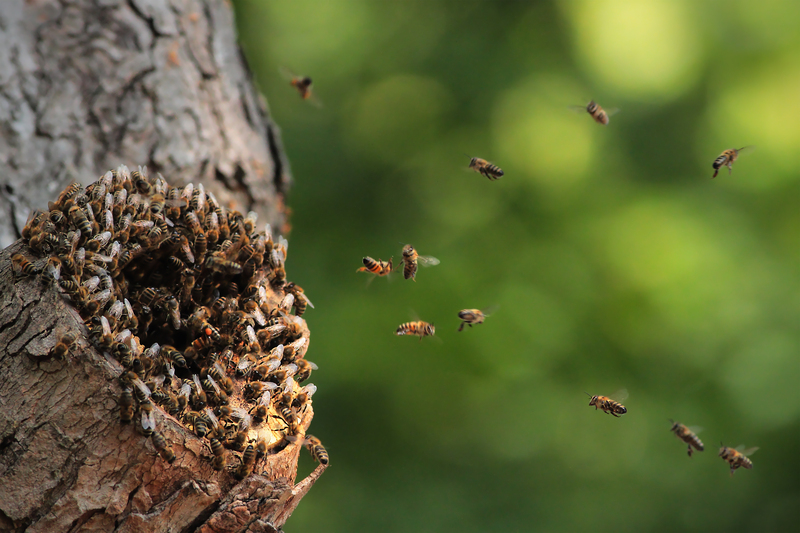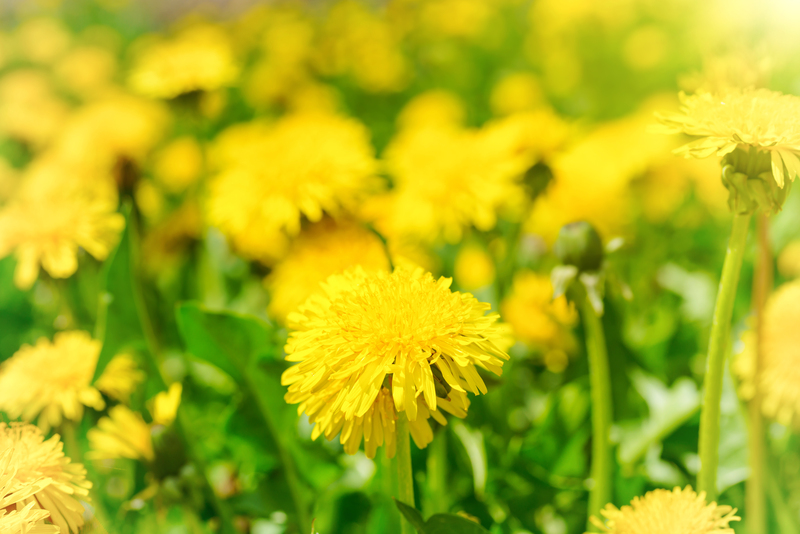9 Essential Gardening Tips to Kickstart Your Green Journey
Posted on 14/06/2025
9 Essential Gardening Tips to Kickstart Your Green Journey
Embarking on your own gardening journey is both rewarding and therapeutic. Whether you dream of lush flower beds, fresh vegetables at your table, or a vibrant green space to relax in, starting a garden is a wonderful way to connect with nature and boost your well-being. This comprehensive guide covers 9 essential gardening tips that every beginner should know. Let's cultivate your gardening skills and transform your outdoor space into a thriving paradise!

Why Start Gardening? The Benefits Await
Before diving into the fundamentals, it's worth highlighting why gardening is worth your time:
- Mental well-being: Gardening reduces stress, promotes mindfulness, and fosters a sense of achievement.
- Physical activity: Regular gardening keeps you active and encourages time spent outdoors.
- Sustainable living: Grow fresh produce, herbs, and flowers for your household.
- Environmental impact: Gardens provide habitats for pollinators and contribute to local biodiversity.
Now, let's dig into the core gardening advice!
1. Select the Right Location
Analyze Your Space
Before you plant your first seed, take time to evaluate your available garden space. Observe sunlight patterns, drainage, and accessibility:
- Sunlight: Most edible plants and flowering varieties need at least six hours of sunlight daily. Check which parts of your yard receive direct sun and which are shaded.
- Soil Drainage: Ensure that water doesn't pool excessively after rainfall. Poor drainage can suffocate roots and kill plants.
- Convenience: Place your garden where it's easy to water, harvest, and maintain.
Choosing the optimal spot is a foundational gardening tip for a thriving green oasis.
2. Know Your Soil
Test and Amend
Your soil forms the basis of your garden's health. Soil quality impacts plant growth, nutrition, and overall garden success. Purchase a soil test kit from your local garden center to learn about pH levels, texture, and nutrients.
- Add compost or organic matter to enrich your soil's structure and fertility.
- Balance soil pH: Most vegetables thrive in neutral to slightly acidic soil (pH 6.0 to 7.0).
- Avoid compacted earth: Loose, aerated soil enables strong root development.
This essential gardening tip ensures your plants start with a strong foundation.
3. Start Small and Expand Gradually
The Smart Gardener's Approach
Don't bite off more than you can chew. For beginners, it's best to begin with a manageable plot - even a few raised beds or containers. As your confidence and experience grow, gradually expand your garden.
- Choose easy plants: Lettuce, radishes, marigolds, and herbs like basil or mint are perfect for novice gardeners.
- Track your progress: Document what you plant, dates, and outcomes in a garden journal.
- Enjoy the process! Gardening is a lifelong learning experience filled with discoveries.
One of the key gardening tips for beginners is to balance ambition with practicality for a sustainable green journey.
4. Water Wisely
Hydration Without Hassle
Efficient watering is crucial in any successful garden. Too little or excessive water can damage plants, so develop a consistent watering technique:
- Water early morning or late afternoon: Minimize evaporation and reduce disease risks.
- Deep, infrequent watering encourages strong root systems compared to shallow, daily sprinklings.
- Check soil moisture with your finger; water only when the top inch feels dry.
- Mulch to retain moisture and keep roots cooler in hot weather.
Proper watering routines set you up for healthy, resilient plants.
5. Choose the Right Plants
Match Plants to Your Environment
Understanding your local climate, soil, and sun patterns is pivotal. Do your research before buying seeds or plants:
- Select native or adapted species: They are hardier, require less maintenance, and attract beneficial wildlife.
- Read plant labels: Note requirements for sun, shade, soil, and spacing to optimize your planting plan.
- Consider your goals: Are you growing for beauty, food, or both? Choose accordingly.
This gardening tip for beginners makes your efforts more fruitful and less frustrating.
6. Feed Your Plants
Nourish to Flourish
Even healthy soil benefits from additional nutrients. Feed your plants with organic fertilizers suited to their needs:
- Compost: Homemade or store-bought compost is a natural, slow-release fertilizer.
- Manure: Aged animal manure adds nutrients but must be composted first to avoid burning young plants.
- Commercial blends: Read labels for balanced, plant-specific blends (e.g., tomato, rose, or evergreen fertilizers).
Regular feeding keeps your garden lush and productive.
7. Practice Pest Control
Protect Your Precious Plants
Gardening isn't without its challenges! Insects, weeds, and diseases can threaten your plants. Favor eco-friendly control methods:
- Encourage beneficial insects: Ladybugs, lacewings, and bees support pollination and pest control.
- Hand-picking: Regularly inspect leaves and remove pests manually.
- Use organic remedies: Neem oil, insecticidal soap, and diatomaceous earth are safe, natural deterrents.
- Practice crop rotation and interplanting: Reduce pest build-up and maintain soil health.
Adopting these essential gardening tips keeps your green journey sustainable and chemical-free.
8. Mulch for Moisture and Health
The Mulching Secret
Mulch is a gardener's best friend. It conserves moisture, suppresses weeds, and boosts soil quality with time.
- Organic mulches (straw, shredded bark, leaves) improve soil as they decompose.
- Apply mulch evenly: A 2-3 inch layer insulates roots but keep it away from stems to prevent rot.
- Replenish annually: Refresh mulched areas each season for ongoing benefits.
Smart mulching is a cornerstone gardening tip for lush, low-maintenance gardens.
9. Keep Learning and Experimenting
The Lifelong Gardener
Great gardens aren't made in a day. Every gardener learns through trial, observation, and curiosity.
- Read books, attend workshops, or connect with local gardening clubs.
- Experiment with plant varieties, layouts, and techniques each season.
- Celebrate your successes and learn from any setbacks.
Gardening is a journey, not a race. Having an open mind and a willingness to adapt are key essential gardening tips on your green journey.
Bonus: Tools for the Beginner Gardener
Getting the right tools can make your green journey in gardening much smoother:
- Hand trowel and fork - For planting and breaking up soil.
- Watering can or hose with adjustable nozzle - Ensures precise, gentle watering.
- Pruners - Keep your plants trimmed and healthy.
- Gloves - Essential for comfort and safety.
- Garden journal - Track your growth, discoveries, and dreams.

Common Gardening Mistakes to Avoid
Even experienced gardeners make mistakes! Here are some frequent pitfalls (and how to prevent them):
- Overwatering or underwatering: Always check soil moisture first.
- Ignoring plant labels: Respect your chosen plant's needs for light, space, and nutrients.
- Skipping soil prep: Invest in your soil before anything else goes in the ground.
- Neglecting regular maintenance: Weeding, mulching, and monitoring are ongoing tasks.
By following the above beginner gardening tips, you can sidestep common problems and enjoy higher success rates in your garden.
Kickstart Your Green Journey Today!
Your garden awaits your unique touch. Embrace these 9 essential gardening tips to transform your yard, patio, or balcony into a thriving green sanctuary. Start small, nourish your soil, choose the right plants, water with intention, control pests naturally, use mulch, and--most importantly--keep learning. With patience and practice, you'll discover that gardening is more than just a hobby; it's a pathway to health, beauty, and personal fulfillment.
Ready to kickstart your green journey? Grab your gloves, pick up a trowel, and watch as your garden--and your passion--blossom with each season. Happy gardening!



